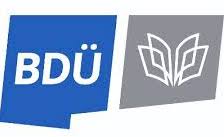The concept of translation quality is probably the most ambiguous in our sector. Ideas of what does and does not constitute translation quality and the factors that influence it vary enormously. However, while this debate has been going on for decades, the wheel of technological change has been turning faster and faster, bringing about radical changes to our profession.
The increasingly clear manifestation of the fault lines between digital transformation and the redefining of our profession and work environment on a daily basis have given way to numerous discussions with various industry participants, colleagues and friends that led to the idea to issue a collective volume that sets out examples covering a diverse range of issues, and above all the various requirements that need to be fulfilled in order to attain – highly individualized – translation quality in as many different areas of our sector as possible.
The result of this idea is the collective volume “Translation Quality in the Age of Digital Transformation” edited by Jean-Marc Dalla-Zuanna and Christopher Kurz. The book represents a strong link between theory and practice. On the one hand, it reflects findings,
tips, strategies and suggestions from day-to-day work, but on the other hand also addresses basic theory and offers a reflective and multifaceted way into the set of issues surrounding quality and translation.
The first part of the collective volume deals with the dimensions of translation quality. To begin with, various different approaches to defining quality are considered. This is followed by a differentiation between process-related and product-related dimensions of quality, with a particular focus on risk management, standardization and the subject of errors, error categories and error assessments.
The second part describes factors that have a significant influence on translation quality: terminology management, the quality of source texts and the translator’s specialist knowledge and grasp of technical concepts.
The third part of this book illustrates the importance of the artefacts of the translational ecosystem for achieving translation quality. These man-made tools of information technology are present in abundance and are permanent features of the modern-day translator’s working environment. They dominate our working conditions and it is hard to imagine doing our everyday job without them today.
The final part of the collective volume is dedicated to application in practice.
The chapters are divided into five broad areas to provide a better overview: finance; multimedia; software industry; technology sector; international institutions and NGOs.
The book can be ordered online or send an email to fachverlag(at)bdue.de.

